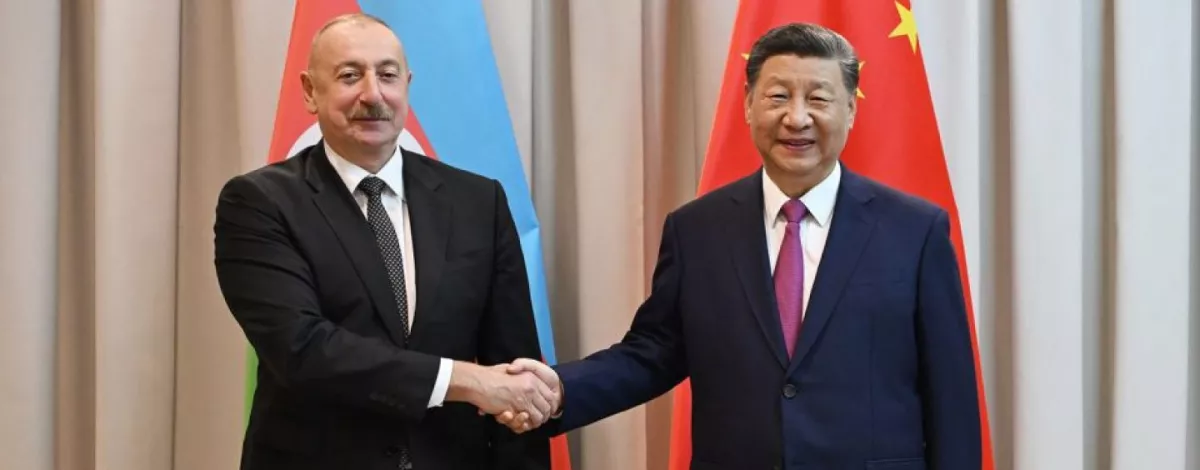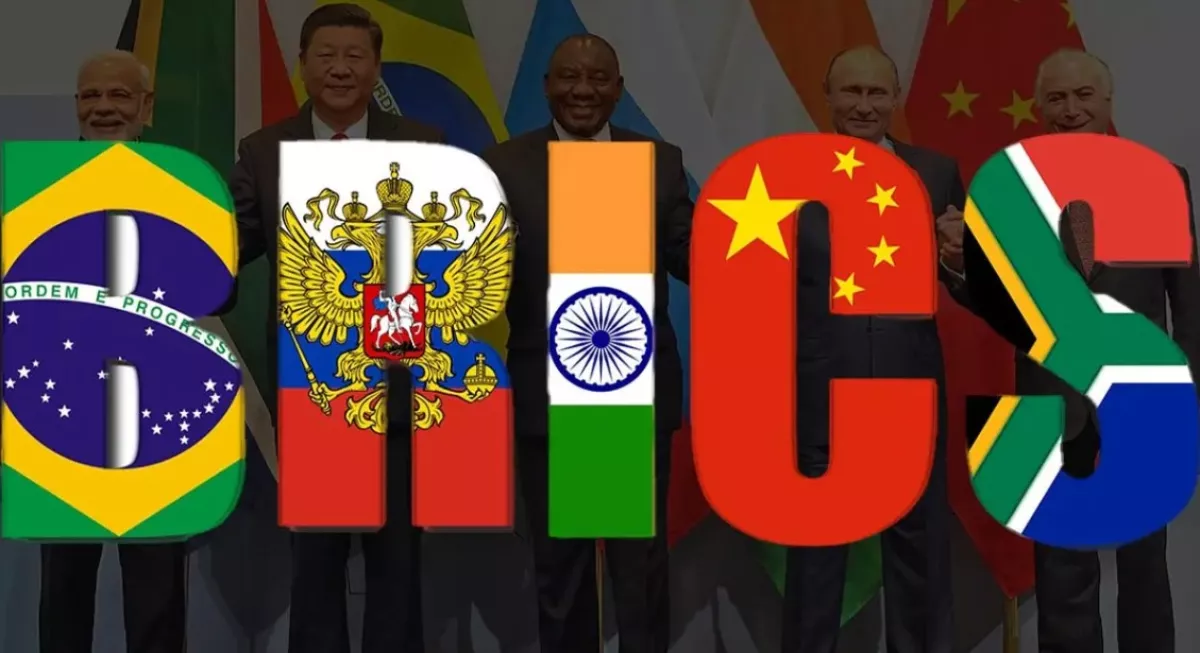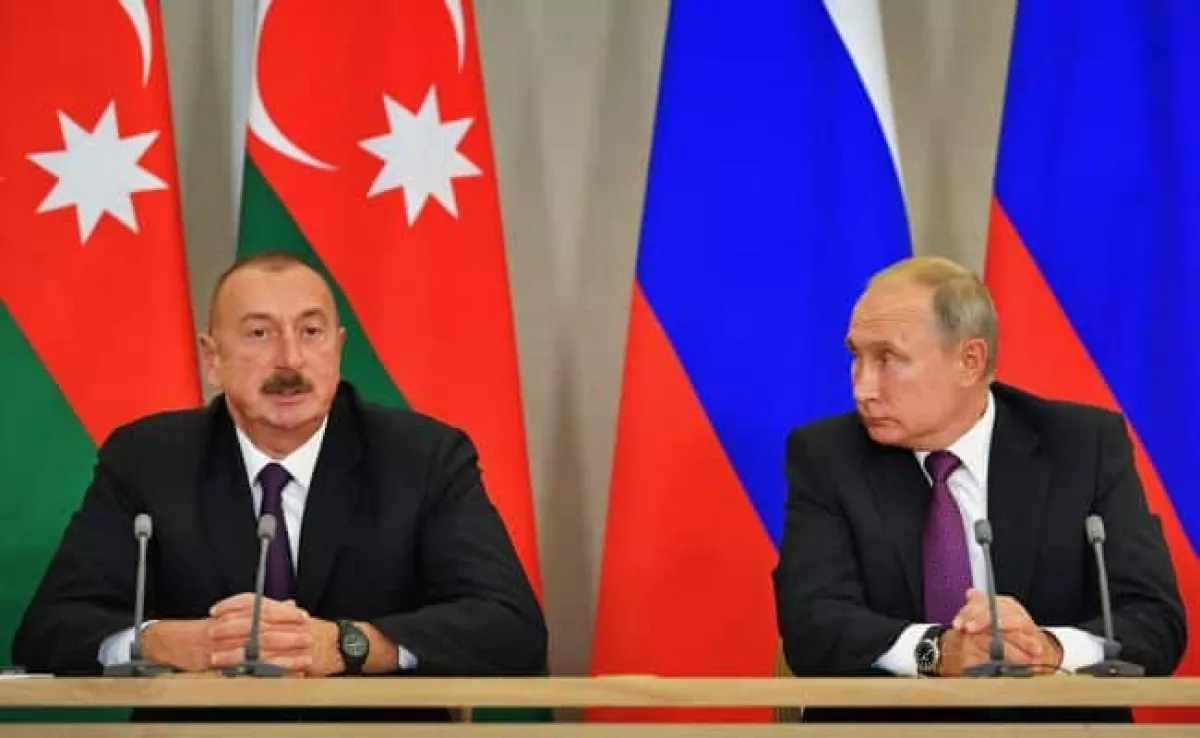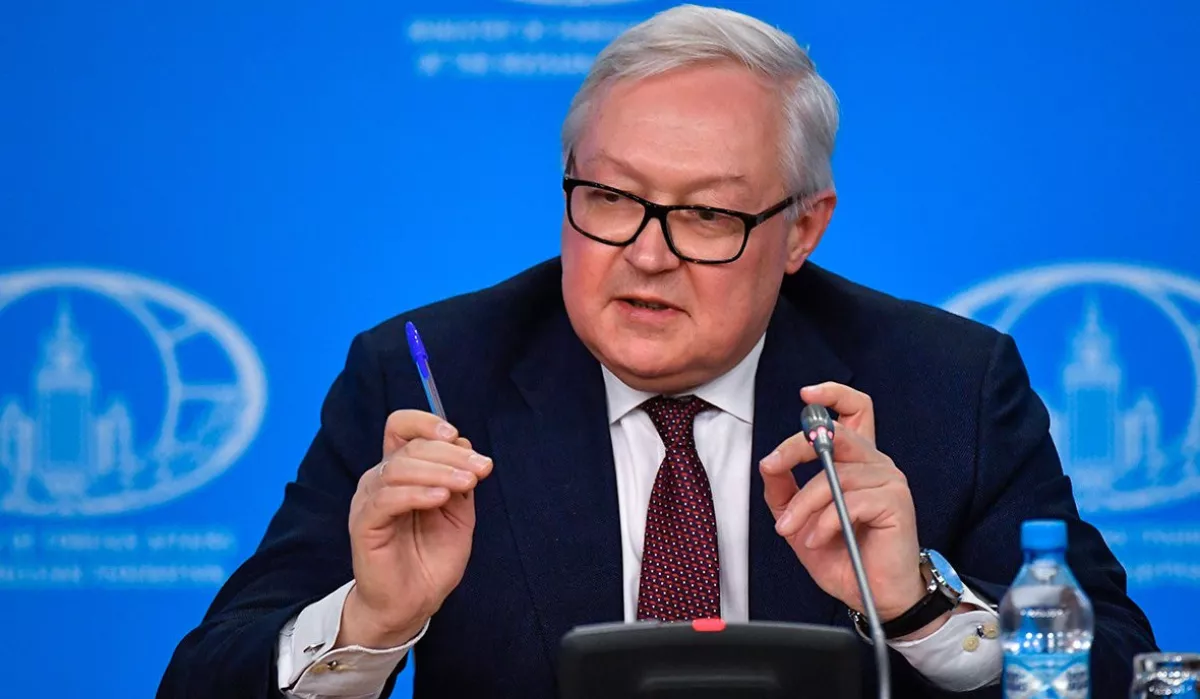Q&A: Azerbaijan pushes for BRICS membership with Russian approval, membership hurdles Moscow backs Baku’s bid
Azerbaijan has officially announced its intention to join BRICS following a visit by Russian President Vladimir Putin. The BRICS group, which includes major emerging economies such as Brazil, Russia, India, China, and South Africa, is expanding, and Azerbaijan’s bid reflects its growing international role. Russia has endorsed Azerbaijan's application, praising the potential benefits it could bring to the group.
However, there are concerns about internal disagreements within BRICS, particularly involving India, which might affect Azerbaijan’s bid. Despite these challenges, Azerbaijan’s strategic importance as an energy partner and its role in international discussions enhance its candidacy.

Q: What recent announcement has Azerbaijan made regarding BRICS?
A: Azerbaijan has announced its formal intention to join the BRICS group, which is a significant development for the South Caucasus nation. This announcement follows a high-profile visit by Russian President Vladimir Putin to Baku.
During his visit, Putin and Azerbaijani President Ilham Aliyev discussed the strengthening of economic and trade relations between their countries. Azerbaijan’s bid to join BRICS reflects its growing international role and ambitions. The country’s application highlights its desire to integrate more deeply into global economic and political frameworks.
Q: What is BRICS, and which countries are currently members?
A: BRICS is an international group originally established in 2009, comprising Brazil, Russia, India, and China. The group was later expanded to include South Africa, forming BRICS. In recent years, the group has also seen additional interest from countries such as Iran, Egypt, Ethiopia, and the UAE, reflecting its growing influence and diverse membership. BRICS aims to promote economic cooperation and development among these major emerging economies, providing a counterbalance to Western-dominated institutions and policies.

Q: Who confirmed Azerbaijan’s bid to join BRICS?
A: Foreign Ministry Spokesperson Aykhan Hajizada confirmed Azerbaijan’s application to join BRICS. His confirmation came amid increased diplomatic activity and strategic discussions following Russian President Vladimir Putin’s visit to Azerbaijan.
The spokesperson’s statement underscores Azerbaijan’s commitment to expanding its international partnerships and enhancing its role in global economic and political arenas. The confirmation of the bid highlights Azerbaijan’s strategic shift towards greater alignment with major emerging economies.
Q: What was discussed during President Putin’s visit to Azerbaijan?
A: During President Putin’s visit to Azerbaijan, he and Azerbaijani President Ilham Aliyev focused on their countries' successful economic and trade relations. They praised the progress made in these areas and emphasized the benefits of their continued cooperation.

The leaders also signed a declaration on allied interaction, further strengthening the ties between their nations. The visit served as a platform to discuss Azerbaijan’s aspirations, including its bid to join BRICS, and reinforced the strategic partnership between Azerbaijan and Russia.
Q: What recent agreements have increased Azerbaijan’s significance as an energy partner?
A: Azerbaijan has recently signed a pivotal agreement with the European Union aimed at reducing Europe’s reliance on Russian oil and gas. This agreement positions Azerbaijan as a crucial energy partner for Europe, especially in the context of ongoing geopolitical tensions.
Additionally, Azerbaijan is set to host the COP29 UN climate talks later this year, further enhancing its international profile. These developments underscore Azerbaijan’s strategic importance in global energy markets and its growing role in international environmental and economic discussions.
Q: What is the BRICS group's aim regarding Western dominance?
A: The BRICS group aims to challenge Western dominance in global economic and political systems. One of its key objectives is to reduce the reliance on the US dollar in international trade, promoting a more multipolar world economy.
By expanding its membership and influence, BRICS seeks to offer an alternative to Western-dominated institutions and policies. The group represents a diverse range of political and economic systems, including both democratic and autocratic regimes, reflecting its broad approach to addressing global challenges and fostering economic cooperation.
Q: How does the BRICS membership process work?
A: The BRICS membership process is informal and invitation-only, without a set of formal criteria for joining. The process involves discussions among existing members and the evaluation of prospective candidates based on their potential contributions to the group’s objectives.
Although there are no official requirements, candidates must align with BRICS’s goals of promoting economic cooperation and reducing Western influence. Azerbaijan’s bid will be reviewed in this informal context, with decisions made based on the consensus of existing members and their assessment of the applicant’s suitability.
Q: What has been Russia’s reaction to Azerbaijan’s BRICS application?
A: Russia has reacted positively to Azerbaijan’s application to join BRICS. Sergey Ryabkov, Russia’s Deputy Foreign Minister, has publicly endorsed Azerbaijan’s bid and expressed satisfaction with the country’s application. Ryabkov noted that Azerbaijan’s membership would bring additional dynamics and unique experiences to the BRICS group.

He also invited Azerbaijani President Ilham Aliyev to the upcoming BRICS summit in Kazan, indicating strong support for Baku’s integration into the group. Russia’s endorsement reflects its strategic interest in enhancing ties with Azerbaijan and expanding the influence of BRICS.
Q: What are the concerns regarding Azerbaijan’s bid to join BRICS?
A: Several concerns surround Azerbaijan’s bid to join BRICS. There are internal disagreements among BRICS members, particularly between Russia, China, Brazil, and India, which could complicate the membership process.
India, in particular, has veto power within BRICS and has previously blocked new members due to geopolitical concerns. Given India’s close military ties with Armenia, there are worries that its stance could affect Azerbaijan’s application. Additionally, the BRICS group faces internal challenges, including differing priorities and perspectives among its members, which could impact the bid’s outcome.
Q: What does Russia believe Azerbaijan will bring to BRICS if accepted?
A: Russia believes that Azerbaijan will bring significant benefits to BRICS if its application is successful. Sergey Ryabkov has stated that Azerbaijan’s inclusion would introduce new dynamics and valuable experiences to the group. He highlighted Azerbaijan’s ability to work on multiple agendas constructively, which aligns with BRICS’s objectives.
Russia anticipates that Azerbaijan’s participation will enhance the group’s overall effectiveness and contribute to its goal of providing a counterweight to Western powers. The addition of Azerbaijan is seen as a positive development for BRICS’s strategic and economic ambitions.








